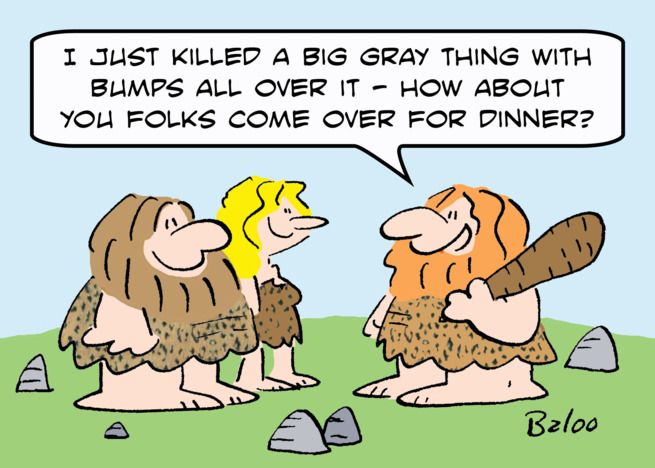
Friendships are essential for our wellbeing and bring out the best in us. Many of us have experienced the benefits of joyful connections, but we still struggle to find the right types of friends. Becoming aware of the blocks will clear the pathway to finding kindred spirits. Learn about the types of friends you need and don’t need in your life.
“When you choose your friends, don’t be short-changed by choosing personality over character.”
— W Somerset Maugham
It’s estimated that we interact with around 80,000 people in our lifetimes. Out of those, most will be acquaintances or people that we meet in passing. Some will feature prominently during certain phases in our lives and then fade out, while others will last a lifetime.
How do you decide who to get closer to and who to let go of in your own life? Do you gravitate towards those you have chemistry with or those who can help you level up somehow?
Most of us tend to go by how we feel about the person and what we can gain by connecting with them. Yet, this arbitrary criterion can land us in hot water.
Buying into the “friendship economy” mentality can lead to superficial friendships not based on genuine care for one another.
On the other hand, wearing rose-colored glasses and accepting anyone into our inner circles based purely on emotion leaves us vulnerable to the bad eggs who can take advantage of us.
The key to finding healthy and mutually beneficial connections is striking a balance. It’s being willing to see the good in everyone while also being discerning enough to spot red flags.
Like any other relationship, when we find the right types of friends and invest in them, our lives will be enriched and enlivened.
“That’s what friends are for”: why we need good friends

Friendships offer a special bond that is essential for our wellbeing. The ancient Greeks called it “philia” —an affectionate love felt between two people who respect each other and enjoy the camaraderie.
This type of love has been extensively showcased in storytelling. Besties like Calvin and Hobbes, Ronald Weasley and Hermione Granger, and Winnie the Pooh and Christopher Robin reveal what it feels like to have true friends.
Philia is a type of love we all need. As social animals, we rely on cooperation to survive. Our brains are larger to accommodate the development of social skills and intelligence.
Although many of us consider ourselves to be self-sufficient, we can’t ignore our communal instincts. We may no longer need the help of others to find food and protect us from predators. Instead, we need their emotional support and resources.
Think back to some of your fondest memories. Chances are they involved celebrating with others. Even your most challenging times were made better because you had companionship.
Close friends are also good for our health and wellbeing. Studies show that they play a pivotal role in promoting overall health by:
- Improving self-worth and confidence
- Reducing stress and boosting happiness
- Helping to cope with loss and trauma
- Providing a sense of purpose and belonging
Adults with meaningful relationships face a reduced risk of major health problems and tend to live longer than those without.
Many of us have experienced the benefits of joyful connections, yet we still struggle to get out of our shells and find the right people to approach and forge strong relationships with.
An epidemic of lone wolves: why friendships are harder to find today

Our culture romanticizes the lone wolf. Being alone for prolonged periods is seen as a strength and a virtue.
In popular culture, lone wolves are misfits who come in to right all the wrongs before retreating to their solitary confines — like cowboys who ride off into the sunset after taking down the bad guys and saving a town.
Lone wolves include aspirational figures like sages, ascetics, philosophers, and artists. Their cloistered life allows them to tap into their creative reserves or reach enlightenment.
Occasional solitude can serve us well. Taking a walk in the woods or sitting in a cozy armchair beside a fireplace and reading a novel are delicious experiences that we need to replenish.
But the modern-day hermit can take it too far. We have become a society of lone wolves, starving for companionship, a sense of belonging, and identity.
To get to the bottom of this epidemic of loneliness, we must understand these root causes:
1. Fear of vulnerability and rejection: Many people are unwilling to open up and reveal their true selves because they’re afraid of being judged and rejected.
2. Busyness: Even if we value friendships, other priorities may take over. Friends can easily take a back seat if you’re juggling work, health, family life, and running errands.
3. Lack of effort to reach out and engage in social skills: Making friends and socializing takes initiative and effort. It’s especially hard for introverts who aren’t fond of small talk.
4. Relying on our partner and family to replace friendships: When we’re younger, we rely on our friendships more than we do later in life. Once we’re partnered up and have children, finding friends and socializing can be trickier and may not feel necessary.
5. Past disappointments: If we’ve been bullied or betrayed by friends in the past, our scars might stop us from reaching out to others because we’re afraid of being disappointed again.
6. Lack of opportunity: When we were kids, we found friends in school or in our neighborhoods. As we get older, it becomes harder to organically meet people unless we prioritize socializing.
7. Focusing on quantity over quality: Social media has had an isolating effect on us. It’s misled us to believe that having more followers is more important than having a few quality friends in real life.
Our “what’s in it for me” culture also instills a utilitarian approach towards friendship, making us befriend only those who can increase our social value or boost our bottom line.
Becoming aware of the blocks will clear the pathways for us to find those kindred spirits with whom we can share beautiful experiences.
Five types of friends you need

1. The jokester: Everyone needs a friend with whom they can let their hair down and have a good time. The jokester is upbeat, energetic, and always up for a good time. They’ll gladly accompany you to the best parties in town and encourage you to be adventurous and get out of your comfort zone.
2. The loyal friend: Probably one of the hardest to find, this is that one friend you know will be there for you no matter what. You’ve shared plenty of experiences, and both know about almost every detail of each other’s lives. They aren’t afraid to give you tough love, but you don’t mind it because of the trust between you. This type of friend is often a soulmate.
3. The sage: This type of friend is usually older or wise for their age. The sage offers some sound advice and direction, whether you’re dealing with dating woes or a work dilemma. They are good listeners who make you feel heard and understood. Their rich insights, expertise, and comforting presence will inspire you to push forward to be the best version of yourself.
4. The work buddy: Many of us spend a lot of our waking hours at work, so it’s important to have a good friend there. When work gets stressful, you can blow off steam with them or share a good laugh. If you don’t work a 9-5 job, having friends in your industry with whom you can exchange notes and discuss common interests can benefit you.
5. The superconnector: Social capital is an important currency in the world, and superconnectors have plenty of it. They have hundreds (sometimes thousands) of people in their network and know them well enough to give them a call. While you may not get close to superconnectors, they can open doors of opportunity that are usually tough to enter. Remember to approach them from a place of generosity as they’re quick to smell a phony.
Five types of friends you don’t need

1. The jealous competitor: This type of friend is constantly looking over their shoulder to see what you’re doing and trying to one-up you if you’re doing better than them. They want to have the same things you have because they feel entitled to it. They can never be genuinely happy for you and will quickly point out your flaws or brag about themselves to feel superior.
2. The drama queen: The drama queen is known for leaving a burning mess in their wake, and often friends like you must clean it up. Their energy is scattered, and they overreact about everything, inflating its importance to epic proportions. Whether it’s their need for attention, constant conflict, or them sucking you into their trauma, being around them will drain you.
3. The negative naysayer: As the name implies, this type of friend has a negative outlook on life. They complain and whine about everything from their partner’s messiness to traffic jams. Nothing is ever good enough for them. If you’re not careful, their foul mood can rub off you. They’ll be quick to put down ideas, call out your mistakes, or judge your choices.
4. The exploiter: These toxic friends are users and abusers. A healthy connection should have a balance of give and take, but they want it to be only about them. They’ll only be fully present and engaged when they need something from you. If you acquiesce to their requests too often, sooner or later, they’ll begin to expect things from you and use that to control you.
5. The fake flake: The fake flake appears genuine, but they’re not. Their flakiness can show up in different ways – not being on time for a coffee date, sudden changes in their behavior, disappearing for weeks and months for no real reason, or not following up with things they say that they’ll do. They’re unreliable and ultimately a waste of your time and effort.
Harper Lee once said, you can’t choose the family you’re born into, but you can choose your friends. When you use this freedom to carefully select who you allow into your inner circle, you’ll find yourself surrounded by friends who love, support, and cherish your company. You can access a doorway to a higher octave of love in their presence.
All my best on your journey,
Seline

Question for you: Can you identify with these ten types of friends? What can you do to find and be a better friend?
Did you like this post? Sign up below, and I’ll send you more awesome posts like this every week.

I love it ❤️
Glad to you hear that! 🙂
This is something that is often hard- dealing with friends we think we need or want and then ones theat end up hurting us in some way. You present a lot of interesting ideas and perspectives here. I will be coming back to this for sure to read again. There is a lot here to digest and take it. Thank you for taking the time to share and to put your thoughts out there for us like this!